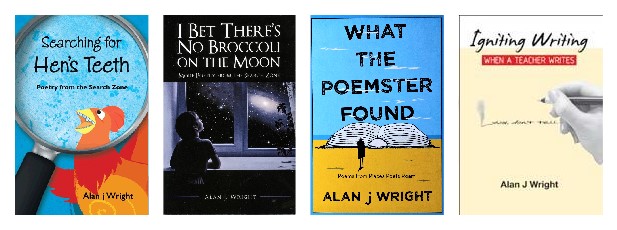A Blast From POETRY PAST
I have written previously about the joy of rummaging. Well, today I did some more,- rummaging that is and it paid dividends. It seemed most appropriate on Poetry Friday.
I uncovered a collection of long forgotten poems I wrote many years ago. -More than thirty years ago to be precise.
This was my first anthology of poems. All hand written on pieces of card and presented in a spiral bound book format. I recall creating this book primarily for my children and my students at that time.
Reconnecting with these early poems again was like seeing ghosts from my past. It was both thrilling and confronting. Confronting because the poems turned out to be much older than I first recollected.
It was so good to reconnect and reread those historic words. It was a feeling akin to unearthing a pirate’s treasure. I got such a buzz revisiting work from this earlier phase of my writing life. I now have some new-old poems to reshape and consider.
I now present a couple of those previously forgotten poems. The first, ‘When Dad Gets Mad’ is presented in its original form.
The second poem, ‘Please Sir’ has been lifted from its original resting place and undergone some revisions in my current writer’s notebook. I am delighted by my discoveries. I am pleased I went rummaging. I recommend it to one and all as a habit worth cultivating. You never quite know what treasure await you.
 |
| Original hand written copy of my first anthology of poems |
 |
| Revised version of Please Sir, taken from my original poetry anthology |


Comments
Post a Comment